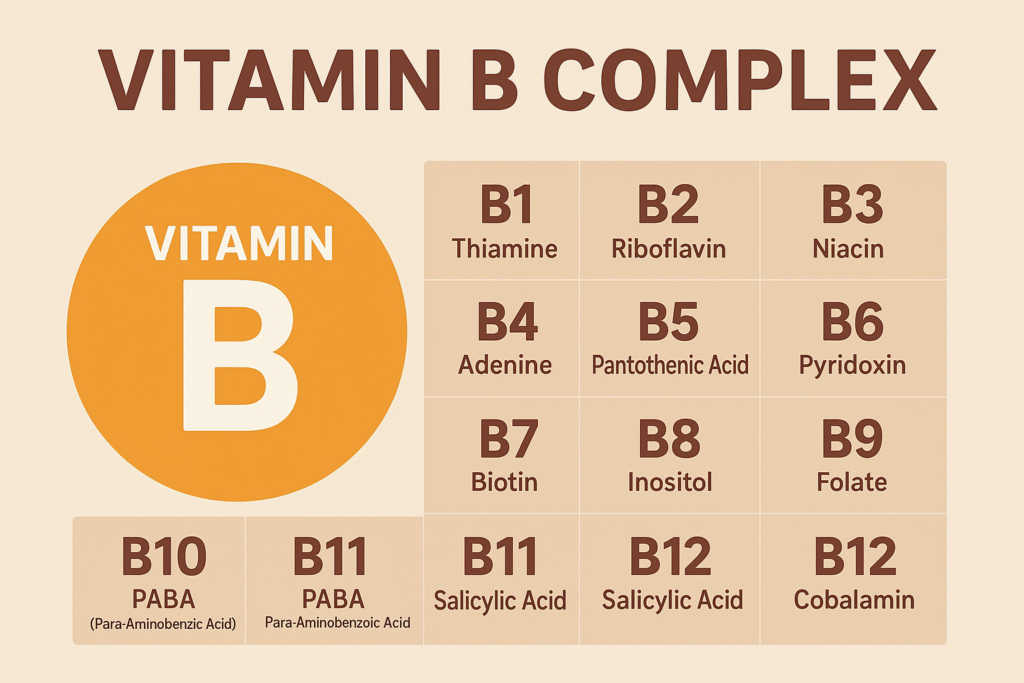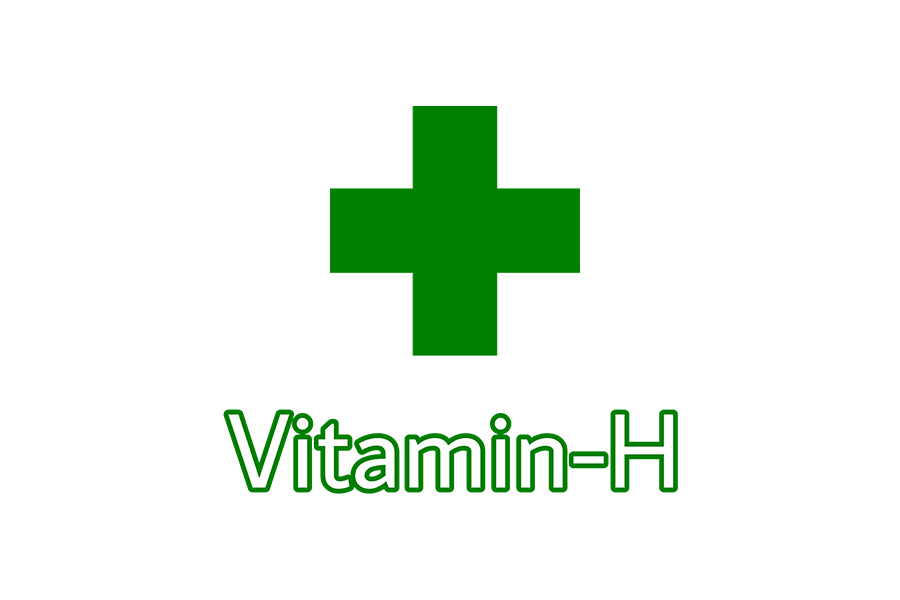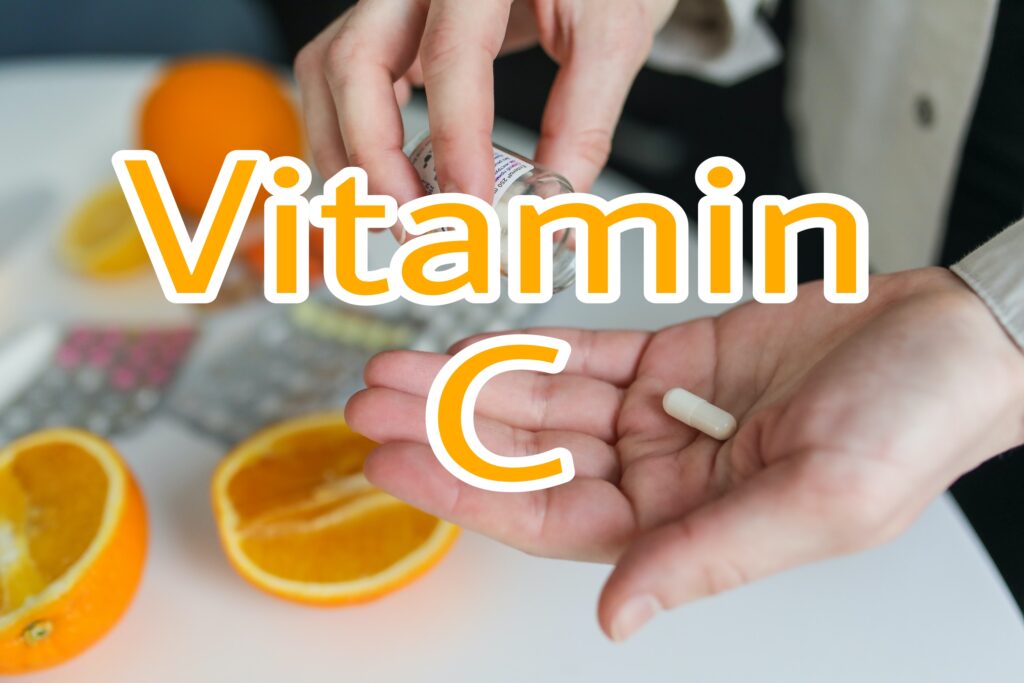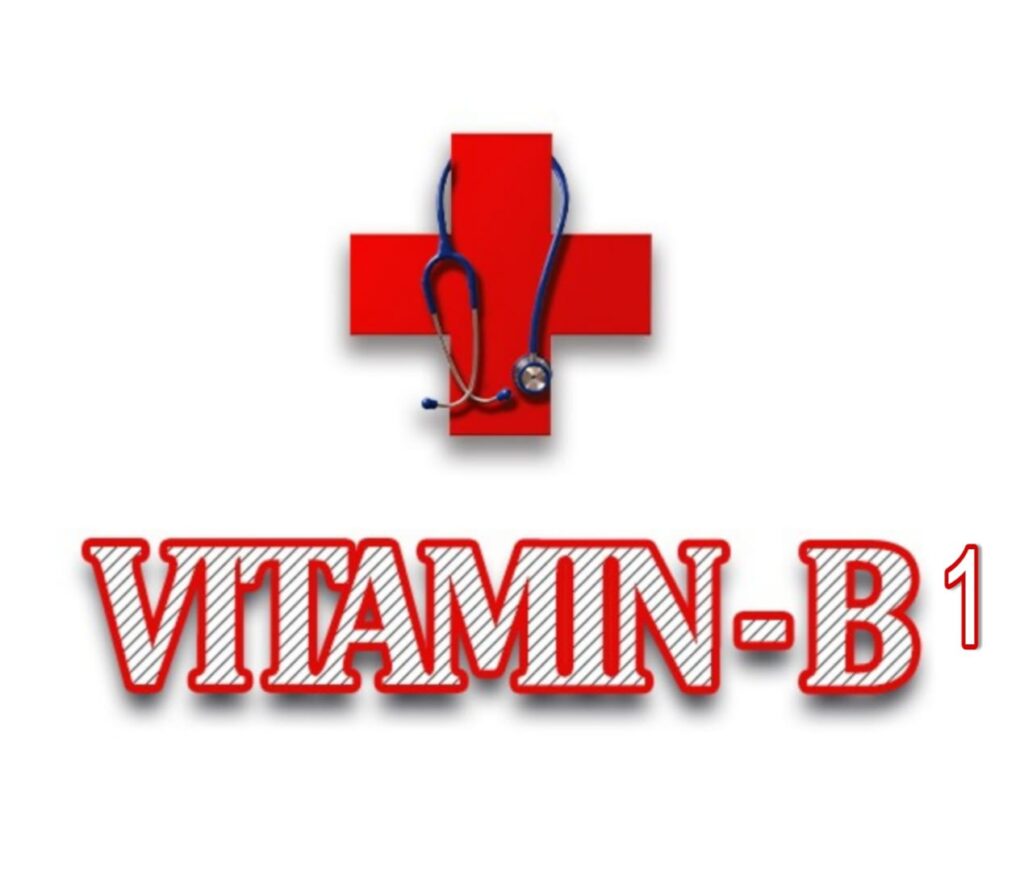
Vitamin B complex is a group of water-soluble vitamins that play a vital role in maintaining energy nerve health and overall bodily function. These vitamins help convert food into energy promote brain activity and support healthy skin and digestion.
Because vitamin B is water-soluble, it is not stored in the body for long periods of time and needs to be consumed regularly through diet or supplements.
Also read this post :- Vitamin B12: Importance, Deficiency Symptoms, Causes, and Treatment
Deficiency of any part of the vitamin B complex can cause fatigue, loss of appetite, neurological problems and various diseases.
Key Features of Vitamin B Complex
- It provides energy and strength to the body.
- Essential for nerve health and proper digestion .
- Increases appetite and improves nutrient absorption.
- It is soluble in water and is easily destroyed by alkaline substances.
- It can tolerate temperatures up to 120 degrees Celsius but heat higher than this destroys it.
- It is stable when boiled with acids, but not when boiled with bases.
Parts of Vitamin B Complex and their names
Scientists have identified 12 main vitamins within the Vitamin B Complex group. Each of these has its own specific function and benefits for the body:
| Vitamin Number | Name | Function |
| B1 | Thiamine | It helps in energy production and nerve function. |
| B2 | Riboflavin | It promotes skin health and converts food into energy. |
| B3 | Niacin | It helps in digestion, skin health and reduces cholesterol. |
| B4 | Adenine | It plays a role in cell growth and tissue repair. |
| B5 | Pantothenic Acid | Essential for hormone production and metabolism. |
| B6 | Pyridoxine | It helps in the formation of red blood cells and brain functions. |
| B7 | Biotin | Important for the health of hair, skin and nails. |
| B8 | Inositol | It is helpful in mental health and fat metabolism. |
| B9 | Folate (Folic Acid) | It is extremely important for cell growth and fetal development during pregnancy. |
| B10 | PABA (Para-Aminobenzoic Acid) | Promotes skin and intestinal health. |
| B11 | Salicylic Acid | It plays a role in metabolism and detoxification. |
| B12 | Cobalamin | Extremely important for the health of nerve tissues, brain function and the production of red blood cells. |
Functions and Importance of Vitamin B Complex
Each vitamin in the B-complex has its own function, but together they:
- Maintain a healthy metabolism.
- Increase energy levels.
- Improve the functioning of the brain and nervous system.
- Promote healthy skin, hair and nails.
- Strengthen your immunity.
- Helping in the formation of red blood cells.
Also read this post :- Vitamin B2 (Riboflavin) Deficiency: Symptoms, Diseases, Sources & Treatment
Sources of Vitamin B Complex
You can get vitamin B complex naturally through a balanced diet. Some rich sources include:
- Whole grains (brown rice, oats)
- Eggs and dairy products
- Leafy green vegetables (spinach, broccoli)
- Fish and meat (salmon, chicken, liver)
- Nuts and seeds
- Pulses (beans, lentils, peas)
Symptoms of Vitamin B Complex Deficiency
Deficiency of Vitamin B Complex can cause the following problems:
- Weakness and fatigue
- Loss of appetite
- Nerve pain or numbness
- Anemia
- Skin rashes or cracked lips
- Hair loss and weakening of nails
- Depression or irritability
How to Maintain Healthy Levels of Vitamin B Complex
- Eat a balanced diet including whole grains.
- Avoid overcooking food, as heat can destroy B vitamins.
- Limit alcohol consumption, as it reduces absorption.
- Consider taking vitamin B complex supplements only after consulting a doctor.
Also read this post :- What is calcium and why does the body need it? The best food sources of calcium.
Conclusion
The vitamin B complex isn’t a single vitamin, but rather a group of essential nutrients that work together to keep the body active strong and healthy. Each part of this complex has its own function and a deficiency in even one can disrupt the overall balance. Including foods rich in vitamin B in your daily diet is the best way to ensure vitality and well-being.
Frequently Asked Questions (FAQs)
Vitamin B complex helps convert food into energy, maintain nerve health, and promote healthy skin and hair.
Yes, because it is water soluble and does not accumulate in the body, it must be consumed daily through food or supplements.
Yes, it helps convert carbohydrates into glucose, thereby increasing your energy levels.
Its deficiency can cause fatigue, poor digestion, nerve pain and skin problems.
Eggs, fish, milk, green vegetables, whole grains and nuts are rich in Vitamin B.





